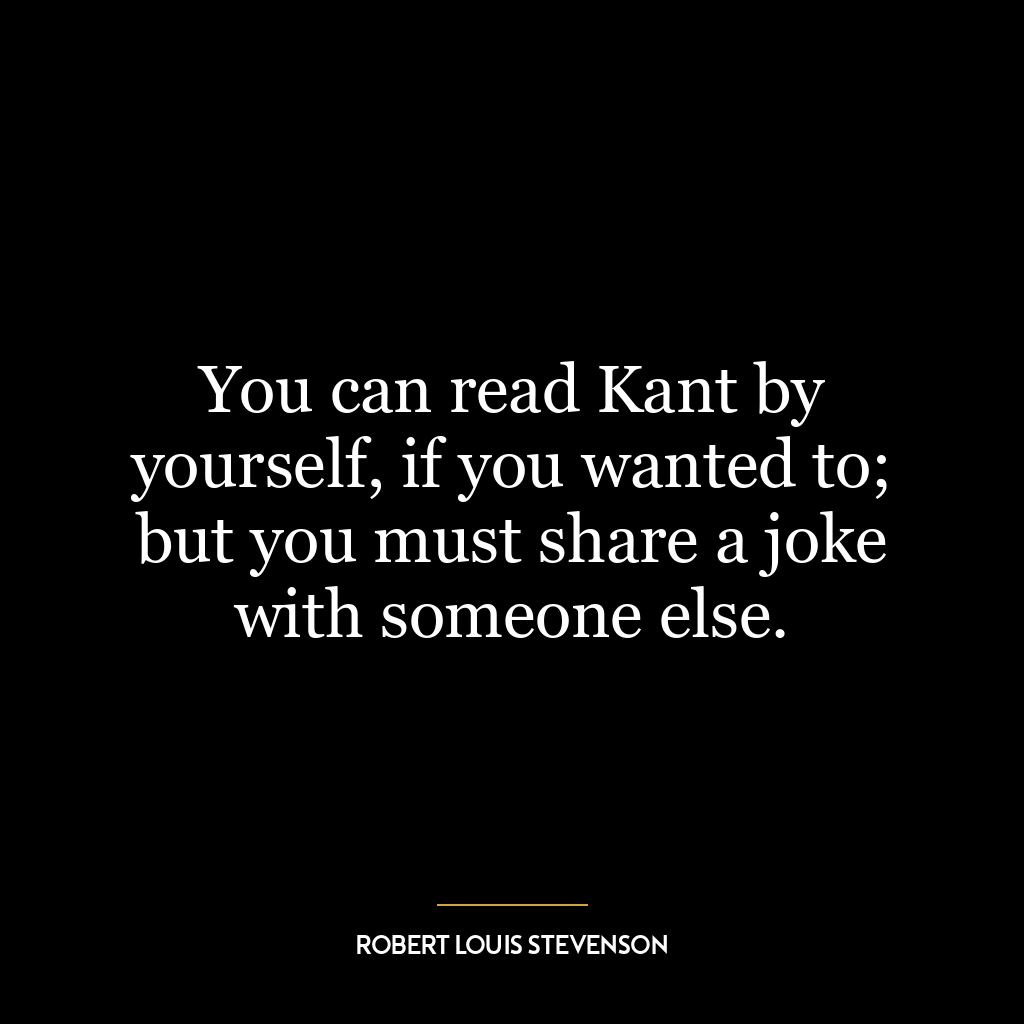You can read Kant by yourself, if you wanted to; but you must share a joke with someone else.
This quote suggests that intellectual pursuits, like reading philosophy, can be solitary endeavors, but humor is a social experience that must be shared to be fully appreciated. It highlights the inherently communal nature of certain human experiences and the solitary nature of others.
Reading Kant, a renowned philosopher, symbolizes solitary intellectual activities. You can delve into complex ideas, reflect on them, and even form your own interpretations without needing anyone else. This can be a deep, enriching experience, but it’s essentially a private one.
On the other hand, a joke, representing shared human experiences, loses its essence when it’s not shared. A joke’s purpose is to amuse, and amusement is amplified when shared. Laughter and humor are communal, they thrive on shared understanding and mutual enjoyment.
In the context of today’s world, this quote can be seen as a reminder of the importance of balance between solitary and communal experiences. In an age where we can easily isolate ourselves with technology, it’s crucial to remember the value of shared experiences.
In terms of personal development, it suggests that while it’s important to cultivate our minds independently, we should also nurture our social connections. It’s through sharing experiences and ideas with others that we often gain new perspectives and learn more about ourselves and the world.
It also touches on the idea of emotional intelligence. Understanding a philosophical text requires intellectual intelligence, but to tell a joke and make someone laugh requires understanding of social cues, empathy, and shared cultural context – all part of emotional intelligence. Thus, the quote subtly underscores the importance of developing both intellectual and emotional intelligence.














![I never have wit until I am below stairs.
[Fr., Je n’ai jamais d’esprit qu’au bas de l’escalier.]](https://quotes.guide/wp-content/uploads/jean-de-la-bruyere/jean-de-la-bruyere-785341.png)
